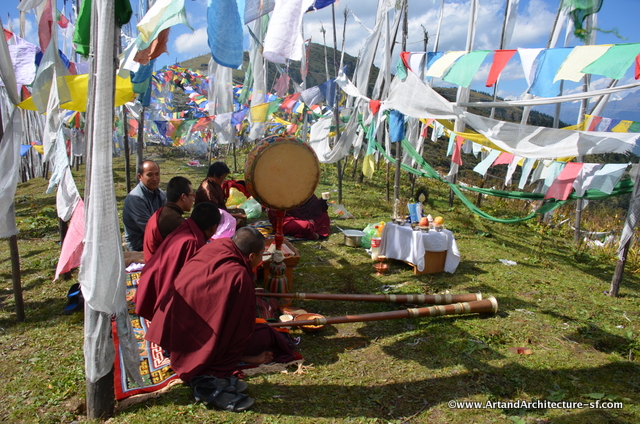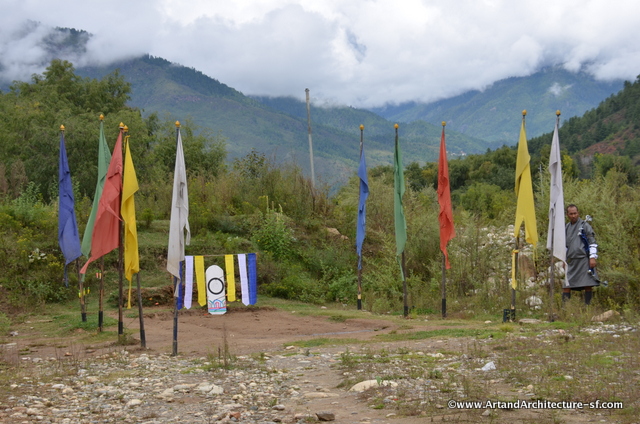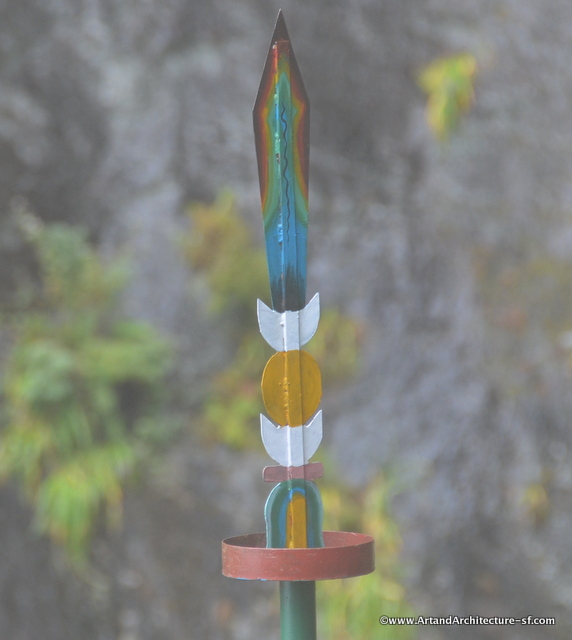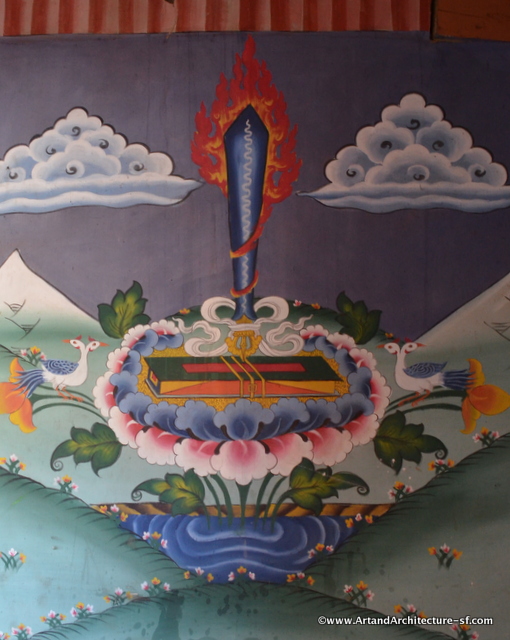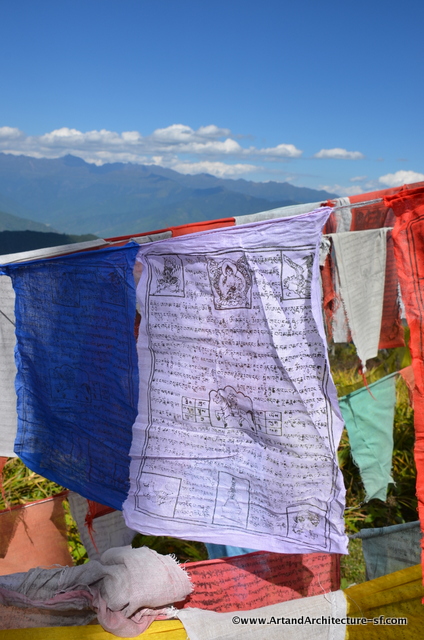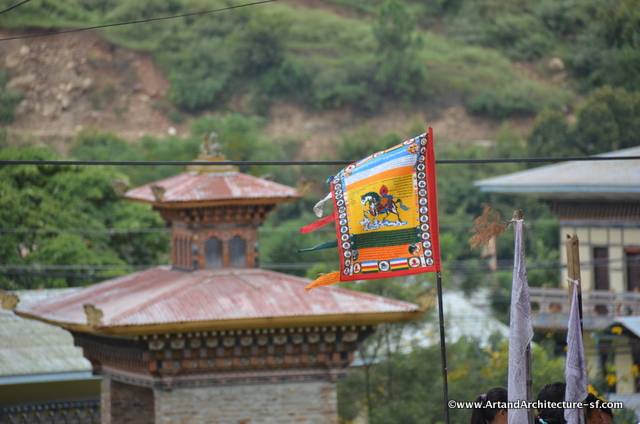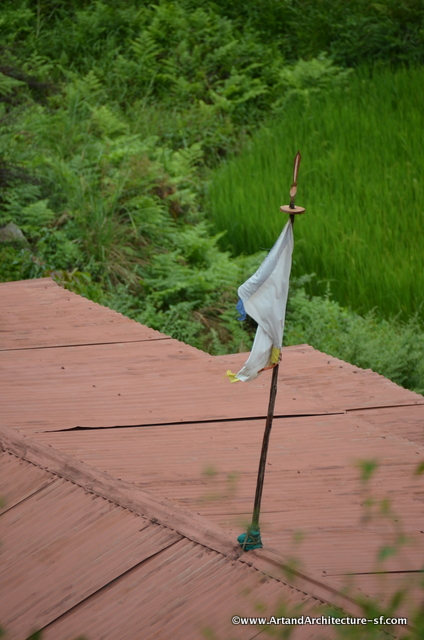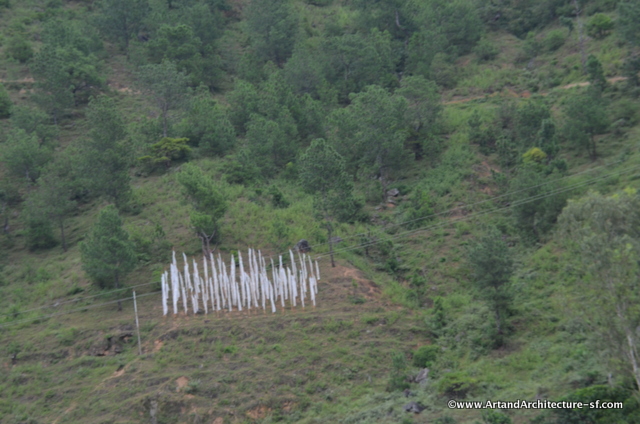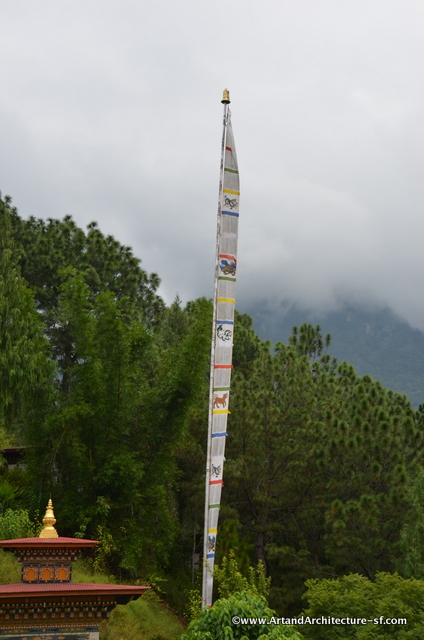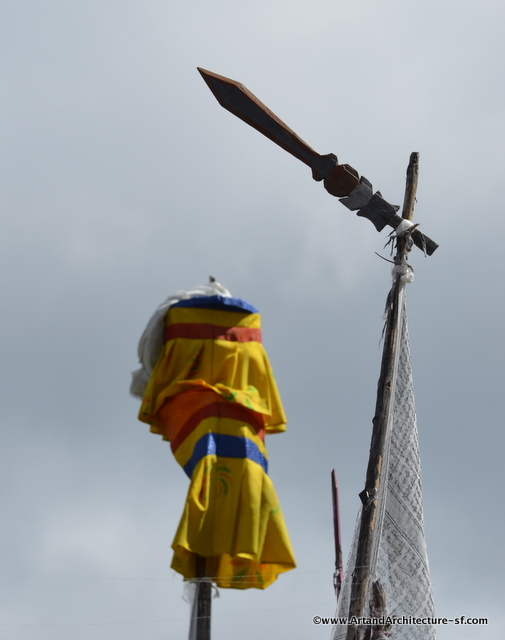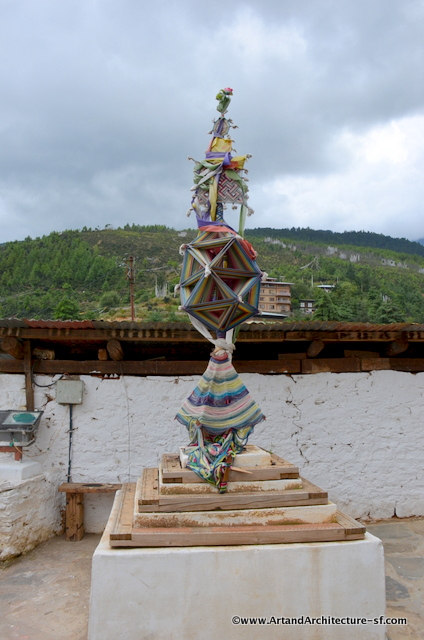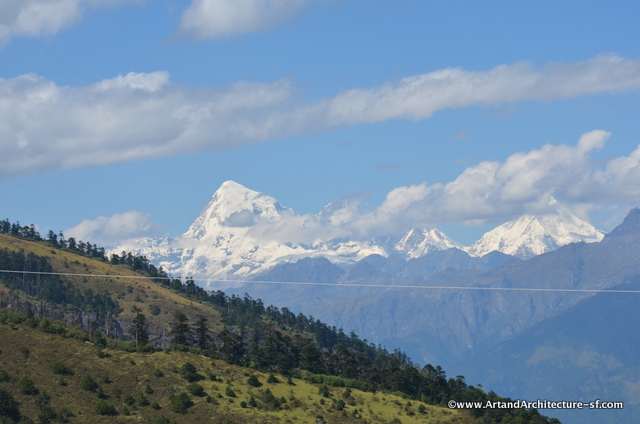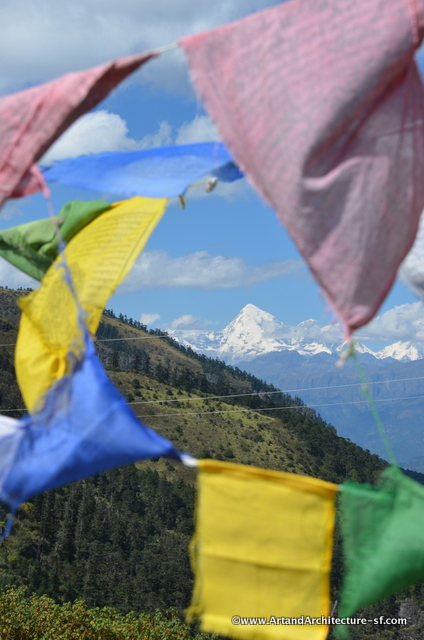Bhutan
September 2015
Most people throughout the world have been exposed to Tibetan prayer flags, but the Bhutanese take the prayer flag a few steps further.
The five colors of the prayer flag are red for fire, yellow for earth, green for wood, blue for water and white for metal.
You will often see flags of these colors with no symbols or writing, and these are simply to ornament celebrations.
The flags, when hung on poles are topped with the flaming sword of Manjushree, (the bodhisattva associated with transcendent wisdom). The sword is sitting on a lotus flower. The sword is to cut through ignorance and the lotus is a symbol of purity.
Prayer flags have a prayer, which is carved into a wooden block and then stamped on the flag. The five color prayer flags are called lunghdar, You will see these flags strung everywhere. It is important that the flags are strung near water, so that the prayers can be carried down to the water and sent throughout.
Lunghdar can also be found on tall bamboo poles and are found on hillsides and once blessed by the monk are hung for protection, health, wealth, good luck, hopes of achievement in a task, or the desire for wisdom.
The lunghdar are printed with the wind horse. The wind horse carries three precious, wish fullfilling, stones on his back.
The goendhar will be found on the roof of every house. Every year a ceremony is performed to bless the house and place a new goendhar on the roof. These flags are white with the five colors in ribbons attached. These flags are in honor of the protective dieties of Bhutan, each area has its own protective diety.
The manidhar flags are always white and most often hung on tall bamboo poles. These flags are usually in clusters of 108 and stamped with prayers to the Bodhisattva of Compassion. Manidhar are erected in honor of a deceased person.
The largest flag you will see is the lhadhar or god flag. These are in front of dzongs and other places of import and represent the fight against evil. These flags are always topped with a silk parasol or brass representation of a parasol. The parasol has no religious purpose, it is simply a form of protection for the flag, similar to seeing the parasol often held above Ganesha in Hinduism.
This is a Ghost Catcher (doe). They are built once a year and placed with a ritual ceremony in homes as well as religious sites.
